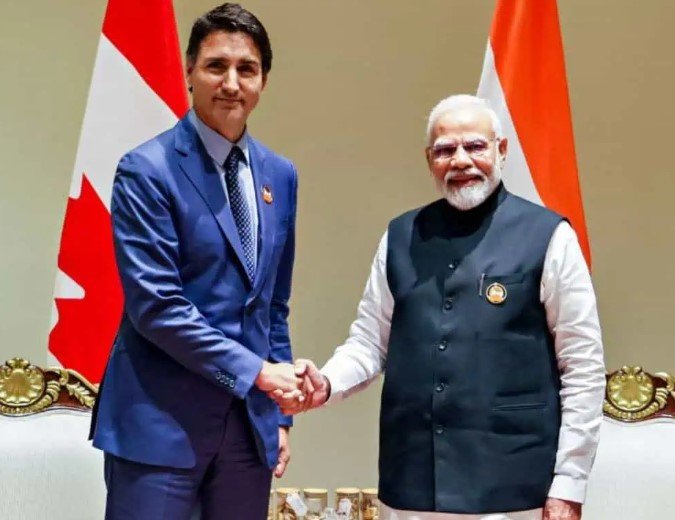MEA Responds Firmly to Canada’s Claims, Accuses Ottawa of Interfering in India’s Affairs
India’s Ministry of External Affairs (MEA) has issued a strong rebuttal to the Canadian commission’s report, which claimed that foreign interference may have played a role in Canada’s recent elections. The Indian government has dismissed these allegations as baseless and countered that it is, in fact, Canada that has been meddling in India’s internal matters.
The remarks come amid rising tensions between the two countries, with both sides accusing each other of overstepping their diplomatic boundaries. The MEA’s response is particularly pointed, as it asserts that Canada’s actions have contributed to a range of problems in India, including illegal migration and organized criminal activity.
A Tense Diplomatic Back-and-Forth
The report from Canada’s commission alleged that foreign entities may have tried to influence the results of Canadian elections. Although India was not directly named in the report, there were hints at external interference, which the Indian government quickly dismissed as “insinuations.”

In its statement, the MEA took a firm stance, noting that it is not India but Canada that has been consistently intervening in its internal affairs. This includes supporting movements that India views as destabilizing and unlawful, the statement suggests.
The diplomatic row between the two countries has been simmering for some time, with growing concerns over issues such as illegal immigration, trade imbalances, and conflicting political priorities.
Alleged Support for Illegal Migration
One of the more serious claims in India’s rebuttal relates to Canada’s handling of illegal migration and its alleged support for illegal immigration routes from India. The MEA accused Ottawa of fostering an environment that enables unauthorized migration, which it says has led to an increase in organized criminal activity. This aspect of the dispute highlights the broader challenges that both countries face in managing cross-border issues.
India has expressed its concerns over Canada’s policies on migration, which it believes are not only encouraging illegal migration but also empowering criminal organizations. According to Indian officials, this situation is damaging both countries, and they have demanded that Canada address this issue more effectively.
While Canada has not yet responded directly to India’s allegations, it is clear that the diplomatic tension between the two nations is escalating. What started as a disagreement over foreign interference in elections has now spiraled into a broader conflict about migration, security, and national sovereignty.
A Complex Diplomatic Relationship
The accusations from both sides underscore the complexity of the relationship between India and Canada, two countries that share significant cultural, economic, and diplomatic ties. Prime Minister Narendra Modi and Canadian Prime Minister Justin Trudeau have had moments of cooperation, especially in areas like trade and international security, but tensions over these sensitive issues continue to strain relations.
India’s assertiveness in rejecting the allegations from the Canadian report reflects the growing importance of national security and sovereignty in its foreign policy agenda. India’s government has emphasized that it will not tolerate foreign interference in its affairs and expects its sovereignty to be respected.
At the same time, Canada must navigate its own concerns about electoral integrity, migration issues, and maintaining strong ties with a global player like India. The outcome of this diplomatic spat could have long-lasting effects on the relationship between the two countries, especially as both governments face internal and external pressures.
What’s Next for India-Canada Relations?
As tensions continue to mount, it remains to be seen how both nations will move forward. The key will likely lie in diplomacy and direct talks, although both sides are currently entrenched in their respective positions. For India, national sovereignty remains a top priority, while Canada may look to safeguard its electoral system and address the concerns of its citizens regarding migration.
Ultimately, the diplomatic fallout from the Canadian commission’s report may have broader implications for the international standing of both countries. As the situation develops, global attention will be fixed on how India and Canada manage their differences and seek to resolve their ongoing disputes.
